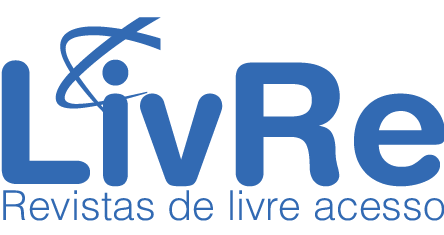Digital media vs mental health:
how excessive use affects our lives
DOI:
https://doi.org/10.5281/zenodo.14567492Keywords:
Digital media, Mental health, Dopamine, Social networks, AddictionAbstract
The impact of digital media on mental health has become a subject of increasing importance, considering the deep penetration of social networks in everyday life. While
they offer significant benefits, such as the possibility of social connection and access to information, their overuse can result in negative consequences for psychological well- being. Research shows that constant exposure to these platforms affects attention span, focus, and memory, as well as contributing to the development of disorders such as anxiety and depression. The incessant search for online validation, through likes and comments, stimulates the release of dopamine in the brain, generating a vicious cycle of immediate satisfaction that can lead to addiction. This dynamic is reinforced by algorithms that personalize content to hold the user's attention, which reduces the ability to disconnect. In addition, the continuous consumption of fragmented information on social networks favors superficial thinking, affecting the quality of learning and critical reasoning. In the face of
these challenges, it is essential to understand how to balance the use of digital media, adopting practices that preserve mental health. This article aims to explore this complex relationship and present strategies for a more conscious and healthy consumption of social networks, aiming to minimize their adverse effects and promote well-being.
KEY-WORDS: digital media; mental health; dopamine; social networks; Addiction.
Downloads
References
ORGANIZAÇÃO MUNDIAL DA SAÚDE (OMS). Saúde Mental: Definição e Determinantes. Disponível em: https://www.who.int/health-topics/mental-health#tab=tab_1 . Acesso em: 26 out. 2024.
DataReportal. (2024). Digital 2024: Global Digital Overview. Disponível em: https://datareportal.com/global-digital-overview.
LEMBKE, A. Dopamine Nation: Finding Balance in the Age of Indulgence. Stanford University Press, 2019.
PSYCHOLOGY TODAY. The Vegas Effect: Our Screens and Dopamine. Disponível em: https://www.psychologytoday.com/us/blog/tech-happy-life . Acesso em: 26 out. 2024.
HEALTHCARE WEEKLY. Psychology of Slot Machine Games Explained. Disponível em: https://healthcareweekly.com/psychology-of-slot-machine-games-explained/ . Acesso em: 26 out. 2024.
SOLIDARIEDADE MULHER. Por que devemos falar sobre a saúde mental das brasileiras? Disponível em: https://solidariedademulher.org.br/porque-devemos-falar-sobre-a-saude-mental-das-brasileiras/ . Acesso em: 17 nov. 2024.
A MENTE É MARAVILHOSA. Dopamina: quais são suas funções? Disponível em: https://amenteemaravilhosa.com.br/dopamina-quais-sao-suas-funcoes/ . Acesso em: 17 nov. 2024.
COMPORTA-SE. A importância dos esquemas de reforço para o analista do comportamento clínico. Disponível em: https://comportese.com/2019/06/22/a-importancia-dos-esquemas-de-reforco-para-o-analista-do-comportamento-clinico/ . Acesso em: 17 nov. 2024.
DRA. ANA BEATRIZ. Compreendendo os diferentes tipos de depressão: sintomas e tratamentos. Disponível em: https://draanabeatriz.com.br/compreendendo-os-diferentes-tipos-de-depressao-sintomas-e-tratamentos/ . Acesso em: 17 nov. 2024.
UOL VIVA BEM. Dia do bem-estar digital: veja como melhorar sua relação com a tecnologia. Disponível em: https://www.uol.com.br/vivabem/noticias/redacao/2023/05/05/dia-do-bem-estar-digital-veja-como-melhorar-sua-relacao-com-a-tecnologia.htm. Acesso em: 17 nov. 2024.
Downloads
Published
How to Cite
Issue
Section
License
Copyright (c) 2024 Revista Mídia e Design

This work is licensed under a Creative Commons Attribution 4.0 International License.
Os direitos autorais dos artigos publicados pertencem à Revista Mídia e Design e seguem o padrão Creative Commons (CC BY), que permite o remixe, adaptação e criação de obras derivadas do original, mesmo para fins comerciais. As novas obras devem conter menção ao(s) autor(es) nos créditos.
















